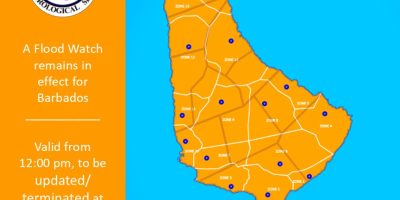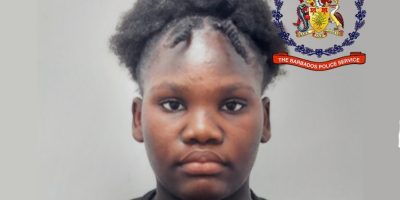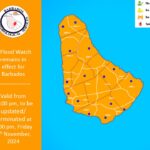MANZINI – Primary school pupils in Eswatini have reportedly been targeted by online predators who have added them to a WhatsApp group sharing explicit and harmful content.
The group, which has members from around the world, is believed to be administered by individuals using UK-registered mobile numbers. Sources indicate that over eight local private schools may have had students added to the group, named ‘Add everyone in your contacts (except parents) also (no asking for admin)’.According to sources, the number of local private schools whose pupils have at some point been registered in the group exceeds eight.
A number of school head teachers in some of the private schools whose learners are reportedly in the WhatsApp group said they were made aware of the existence of the group on Wednesday afternoon. The WhatsApp group has members from across the globe based on the mobile numbers of participants listed. Enjabulweni Independent School head teacher, Mathew Kamota, said after establishing that there was such a group, they conducted an investigation where they discovered that learners from as low as grade IV were added to the group.
He said they discovered that the children were added for the purposes of pornography, extortion, bullying, paedophilia and racism.Kamota said their investigation uncovered that there were over 30 pupils from their school’s primary, who at some point were unknowingly added into the group, without their consent. He said following this discovery, they interviewed a number of learners who confirmed being added into the group; but exiting it as they did not know who had added them.
“We’ve engaged the pupils and advised them that it was not their fault that they were added into the group which shared such material. We are already offering therapy to them for the trauma they might have suffered,” Kamota said. He said the biggest challenge was that the pupils did not bring their phones to schools; but used them at their respective homes. The head teacher said it was for this reason that it had been difficult to unearth this illicit act by the administrators of the group.
Kamota applauded the learners for being open and sharing information about what was happening in the group. He said they had discovered various pornographic material and deep fake material in the group.Furthermore, he said racial slurs were used to instil fear to the minors. Kamota said the school had communicated the discovery with guardians and parents of their learners. He said they had implored the guardians to ensure that their minors are safe from being abused online. The head teacher said they were already sharing material with parents on how they can ensure that their children are safe.
“We are also looking into what First World countries are doing, such as the Safer Schools in UK (United Kingdom) where minors are not encouraged to have smartphones until the age of 17. For basic communication, they are given phones which only receive messages and place calls,” he said. Kamota further reiterated appreciation to the pupils by saying, ‘We applaud our children who reported this matter to us, for their moral courage. It shows that the learners understand the mission and vision of Enjabulweni School’.
He said the school had already contacted experts in cybercrime and shall also be teaching the learners about cyber security today. On the other hand, Jabez School Head Teacher Linda Singani also confirmed that the school had been alerted of this group. She said they are still engaging in preliminary investigations while also alerting all relevant stakeholders.Singani said: “We can neither deny nor confirm that learners from the school are in the group; however, we’ve been alerted about its existence.”
She said they would heavily rely on guardians in dealing with the issue along with the law enforcers and entities dealing with cybercrime.Meanwhile, a statement was sent to guardians of pupils from Usuthu Forest School International (UFSI). The management of UFSI urged all parents of their learners to be vigilant with what their children are being exposed to.“We believe that children are being added without their consent, and when children leave the group, they start receiving threatening messages privately. Some children are afraid (or embarrassed) to inform adults about this group since group administrators are apparently generating deep fake content using the facial images of the children,” it reads in part.
The statement further shared the name and profile of the group while informing them that it was likely to change at any given moment.
The UFSI statement further relayed that there were over 1 000 members already on this group and they advised the parents to take the following steps immediately:
1. Check your child’s phone and their social media platforms for any irregular activity.
2. If your child is on a group which you do not approve, please remove them.
3. Report any suspicious activities to the authorities:
· Police: dial 999
· Eswatini Communications Authority dial: 24067000
· Eswatini Child Helpline: dial 116
4. Bolster security settings on Whatsapp by clicking on:
Settings -> Privacy -> Groups -> “Who can add me to groups”:
My contacts except ->Exclude everyone.
5. Do not allow your child’s profile picture to be visible to all.
Make it private if you wish to use a picture.
6. Talk to your child about the dangers of online groups.
Furthermore, the school communicated that its counsellor was available to offer counselling for any child who might be suffering from being exposed to online extortion of this kind.“Please message one of the school principals if you feel your child will need assistance. Thank you for continuing to ensure your child remains safe and vigilant while using online platforms,” reads the statement. This form of exploitation of children is not unique to Eswatini as the British Broadcasting Services (BBC), in its website on October 30, 2024 reported that Clacton County High School in Essex had advised parents to ensure their children do not join ‘Add Everyone’, or to block and report it if they have.
“In a widely shared post on its Facebook page, the school says the WhatsApp group could ‘put young people into dangerous and vulnerable situations’. The school has told the BBC that “as far as we are aware, no students have joined this group” and it was merely raising awareness,” reads the article in part. Also, Mybroadband, which is a tech news online publication, quoted South Africa’s Be in Touch founder Kate Farina, who called for phone-free schools and no social media before the age of 16 in June 2024. She also said children should be banned from using smartphones until they reach high school age.
Citing Jonathan Haidt’s ‘The Anxious Generation: How the Great Rewiring of Childhood is causing an Epidemic of Mental Illness’; she said parents and schools should do more to protect children online.She added that too much was being done to shelter children in the ‘offline world’, but many were given free rein when it came to online activities.
The Royal Eswatini Police Service (REPS) has confirmed that it is investigating reports of a WhatsApp group where primary school children were added without their consent and exposed to explicit content.Senior Superintendent Phindile Vilakati, Chief Police Information and Communications Officer, stated that the cyberbullying, exploitation, and addition of pupils to the group had been reported to the police and investigations are underway.
The Computer Misuse and Cybercrimes Act of 2018 (CMCA) addresses such offenses. While the Act does not explicitly mention ‘exposing minors to pornographic material,’ it criminalises the possession, distribution, and production of child pornography.
The specific penalties for these offenses are:
·Possession of Child Pornography:A person found in possession of child pornography can face imprisonment for a period not exceeding 10 years or a fine not exceeding E500 000, or both.
·Distribution of Child Pornography: A person found guilty of distributing child pornography can face imprisonment for a period not exceeding 20 years or a fine not exceeding E1.5 million, or both.
Production of Child Pornography: A person found guilty of producing child pornography can face imprisonment for a period not exceeding 25 years or a fine not exceeding E1.5 million, or both.
Meanwhile, the CMCA addresses cyber bullying under the offense of ‘cyber harassment’. Cyber harassment is defined as the use of a computer system to harass another person, including by sending threatening or abusive messages.
The penalties for cyber harassment are:
· Imprisonment: A person found guilty of cyber harassment can face imprisonment for a period not exceeding five years.
· Fine: A person found guilty of cyber harassment can be fined an amount not exceeding E250 000.














